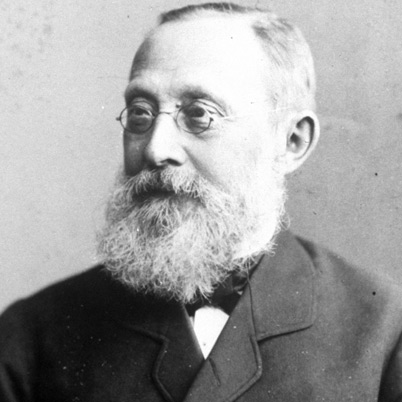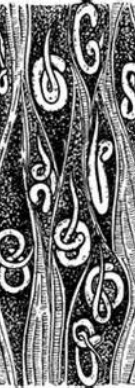German Trichinosis
Trichinosis is a disease initiated by the presence of small parasitic worms called trichinae (Trichinella Spiralis). Although not contagious, trichinosis is easily caught when humans consume raw or undercooked meat, especially pork. Throughout historical records only two percent of all cases have proven to be fatal, but it is considered an "excruciatingly painful disease that is among the most dreaded of human afflictions" -Uwe Spiekermann (German Historical Institute)
During the 1800's America's food industry began to mass-produce meat products; as a result, the process was made cheaper as the rate of production grew higher. This lead to many issues concerning health risks, as the meat was often not fresh and processed in a fraudulent fashion. American consumers were partially aware of this but quieted by scientific research proving that the trichinae were destroyed in heat, but foreign consumers did not rest reassured-and "American officials were fully aware of German health concerns about American pork" (Spiekermann).
During the 1800's America's food industry began to mass-produce meat products; as a result, the process was made cheaper as the rate of production grew higher. This lead to many issues concerning health risks, as the meat was often not fresh and processed in a fraudulent fashion. American consumers were partially aware of this but quieted by scientific research proving that the trichinae were destroyed in heat, but foreign consumers did not rest reassured-and "American officials were fully aware of German health concerns about American pork" (Spiekermann).
|
"German fears led first of all to public education. Regional authorities advocated the proper cooking of meat and warned against eating raw and underdone pork, especially sausages and ham. Unfortunately, such dishes were an essential element in the diets of the middle and lower classes and of German food culture and identity. Experts and politicians knew that they could not change such habits in a short time"
(Spiekermann). American culture, on the other hand, did not participate in the consumption of raw or undercooked meat and thus locally the problem did not become a major issue. Only when Germany and other European markets banned American meat, did the issue fully strike the US as they lost great profit from reduced exports.
"The imperial German decree of June 23, 1880...which prohibited the import of all types of American pork except ham and bacon, had...primarily health-related reasons. The decree was part of a European-wide ban on American pork, which started in 1879 in Italy, Hungary, and Austria. The implicit message to Americans was that they should improve the hygienic quality of their products and establish an examination system similar to Germany’s." (Spiekermann)
|
This was only to be the beginning of the exposure food corruption in the United States, as gradually American consumers began petitioning for the industry to act at least responsibly, if not in the interest of the well-fare of the citizens of their country.




